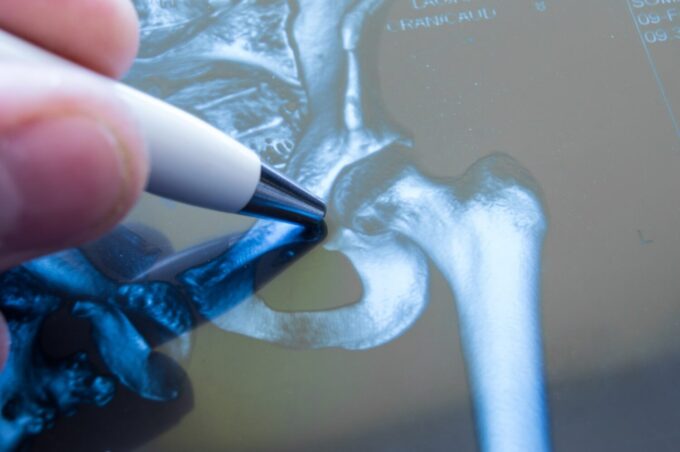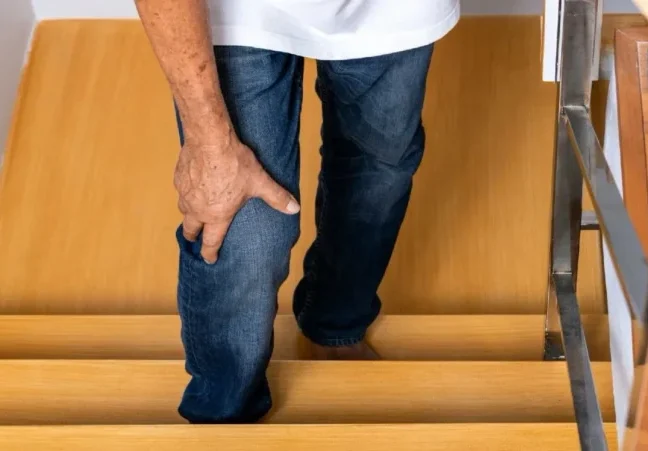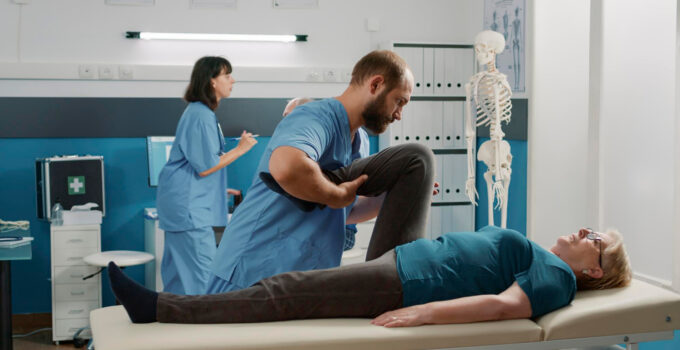Explore 8 key signs indicating the need for hip replacement surgery, including options and prices in ireland and abroad. Understand when surgery becomes essential. Few things are more debilitating than an ailing hip. Stiffness, pain, and swelling are common, preventing people from going about their everyday lives. The solution is hip replacement surgery.
However, surgery is never a first-line treatment. It’s only advised after other, more conservative options have failed. Moreover, the hip surgery price in Ireland is significant – and waiting times are long. That leaves the option of hip replacement surgery abroad.
Patients want to know that surgery is their last remaining option if they’re going to spend privately to undergo the procedure. So, what are the signs you need hip replacement surgery? Find out below.
What is Hip Replacement Surgery?
Hip replacement is a surgical procedure where the damaged hip tissue is removed and replaced with artificial implants. Usually, the complete ball and socket joint is removed, including the femoral head (ball) and acetabulum (socket).
Prosthetic replacement consists of ceramics, metals, and even advanced plastics. In the procedure, the patient receives general anaesthesia.
8 Signs You Need Hip Replacement Surgery

Source: oaaortho.com
- You Struggle with Chronic Pain
- You Have Significant Hip Stiffness
- You Cannot Complete Normal Activities
- You No Longer Receive Relief from Conservative Treatments
- Tests Indicate Significant Joint Damage
- You Fail the One Leg Test
- You Experience Side Effects from Medications
- Your Surgeon Believes Hip Surgery is the Best Option
1. You Struggle with Chronic Pain
Chronic pain in the hip region is a primary indicator that hip replacement surgery is necessary. This pain isn’t just a temporary discomfort but a persistent and debilitating issue. Mild and even moderate pain is usually managed with pain medication like paracetamol or ibuprofen. However, as the condition worsens, it can lead to the following signs:
- Persistent Discomfort: The pain in the hip joint is constant and worsens with activity.
- Impact on Daily Life: The intensity of the pain significantly hinders daily activities, such as walking, bending, and sitting.
- Nighttime Pain: Pain that persists during rest or worsens at night can strongly indicate severe joint damage or degeneration.
2. You Have Significant Hip Stiffness
Stiffness in the hip is a cardinal sign of arthritis. Osteoarthritis, in particular, results in stiffness after rest. In most people, some stiffness is manageable. However, if it begins to restrict your range of motion, preventing normal activities, like bending over or putting on shoes, then it can no longer be managed conservatively.
If you’ve recently injured your hip, acute stiffness is expected. Typically, the stiffness will subside as the joint heals. Chronic stiffness, on the other hand, can be a sign that hip replacement surgery is needed.
3. You Cannot Complete Normal Activities

Source: fitpaa.com
Function is a critical aspect of hip conditions. Surgeons are reluctant to advise surgery if you can still perform your usual daily activities. But, when degenerative joint disease affects your independence, surgery is the preferred treatment option.
Common activities of daily living (ADLs) patients might find challenging or impossible include:
- Walking: Difficulty in walking short distances or a noticeable limp while walking.
- Climbing Stairs: Struggling to climb up or down stairs due to pain or stiffness.
- Getting In and Out of Vehicles: Finding it hard to get into or out of cars without significant discomfort.
- Bending Over: Inability to bend over comfortably, impacting activities like tying shoes or picking up objects from the floor.
- Sitting and Rising: Experiencing pain or stiffness when sitting down and standing up, especially from low chairs or sofas.
Check out our article and discover when you should consider orthopedic surgery and learn the health benefits and risks of named procedures.
4. You No Longer Receive Relief from Conservative Treatments
Surgery carries risks, including infection and blood clots. In rare cases, the replacement can even fail. That’s why surgeons prefer to exhaust conservative treatments first. Pain medication, physical therapy, and steroid injections are first-line treatments for hip pain and stiffness.
But, in degenerative conditions like osteoarthritis, conservative treatments eventually fail. When they do, it’s a clear sign that hip replacement surgery is necessary.
5. Tests Indicate Significant Joint Damage
Osteoarthritis and other hip joint conditions are diagnosed and monitored via scans. X-rays and MRIs are the preferred imaging media.
If an x-ray shows significant loss of cartilage, bone spurs, or bone rubbing against bone, your doctor may recommend surgery. The same is true if the MRI scan reveals damage to the surrounding soft tissues.
6. You Fail the One Leg Test

Source: bigthink.com
The “one leg test” is a simple yet effective measure of hip function. If you cannot stand on one leg for longer than a minute – even with support – then your hip could have a significant problem. Remember, this isn’t necessarily a test of balance or muscular strength. It’s testing to see if the joint can withstand the weight.
7. You Experience Side Effects from Medications
Pain medications, like NSAIDs, work wonders. Not only do they relieve pain, but they can also reduce inflammation. However, long-term, such medications increase the risk of side effects such as stomach ulcers, stroke risk, weakened immune system, and even addiction.
8. Your Surgeon Believes Hip Surgery is the Best Option
Ultimately, whether you decide to pursue hip replacement surgery abroad or not, the decision rests with your surgeon. They have the expertise and experience necessary. They’ll listen to your history, perform a thorough examination, and look at your scans. Based on this information, they’ll say whether they think you’re a viable candidate.
Choose Hip Replacement Surgery Abroad with Kardiolita Hospital
The hip surgery price in Ireland continues to rise. For patients who meet the signs listed above, it’s a growing concern. Living with pain and stiffness simply isn’t an option.
Little wonder thousands of Irish patients choose hip replacement surgery abroad. At Kardiolita Hospital, you can expect to pay a tenth of the cost compared to the hip surgery price in Ireland. Want to learn more? Explore your options and register with us today.






